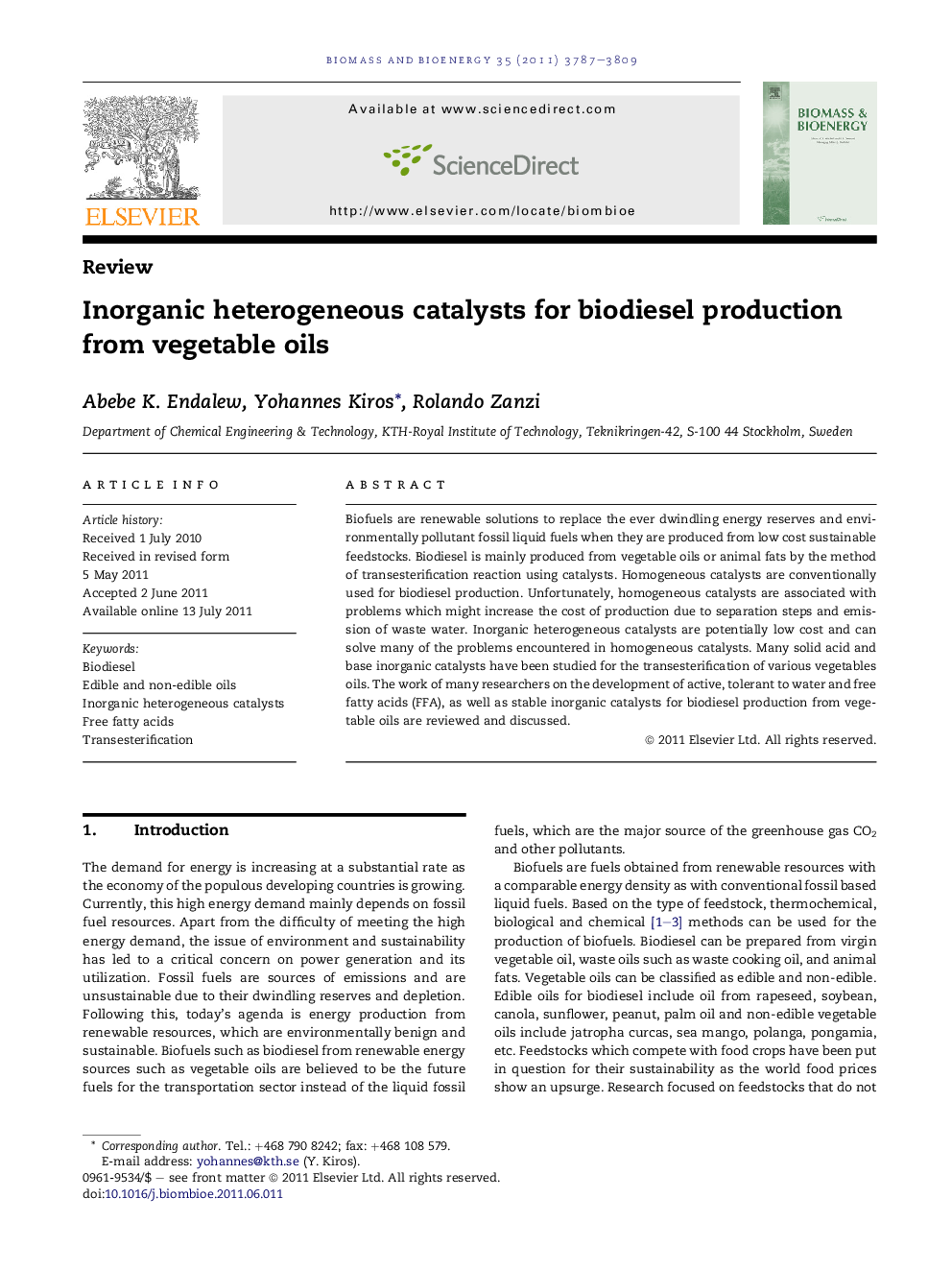| Article ID | Journal | Published Year | Pages | File Type |
|---|---|---|---|---|
| 677667 | Biomass and Bioenergy | 2011 | 23 Pages |
Biofuels are renewable solutions to replace the ever dwindling energy reserves and environmentally pollutant fossil liquid fuels when they are produced from low cost sustainable feedstocks. Biodiesel is mainly produced from vegetable oils or animal fats by the method of transesterification reaction using catalysts. Homogeneous catalysts are conventionally used for biodiesel production. Unfortunately, homogeneous catalysts are associated with problems which might increase the cost of production due to separation steps and emission of waste water. Inorganic heterogeneous catalysts are potentially low cost and can solve many of the problems encountered in homogeneous catalysts. Many solid acid and base inorganic catalysts have been studied for the transesterification of various vegetables oils. The work of many researchers on the development of active, tolerant to water and free fatty acids (FFA), as well as stable inorganic catalysts for biodiesel production from vegetable oils are reviewed and discussed.
► Inorganic heterogeneous catalysts are reviewed for biodiesel production. ► Comparisons among the different catalysts for biodiesel are made. ► Viable and innovative approach are investigated and covered by the studies. ► Advantages and disadvantages of catalytic materials are covered.
